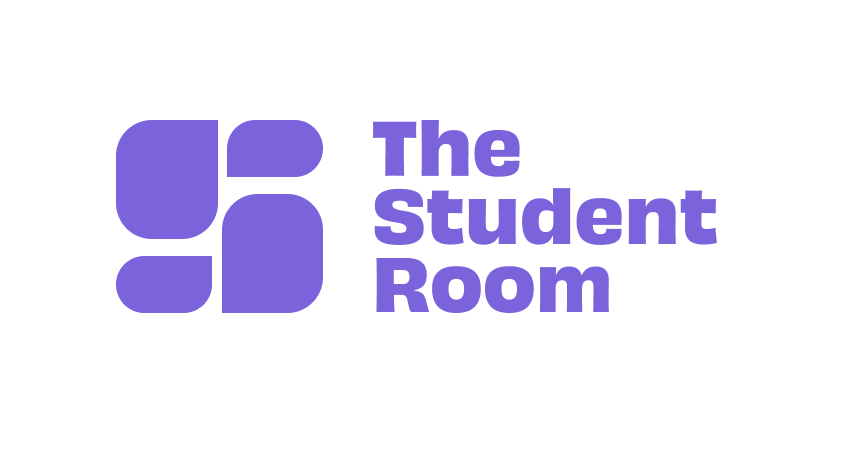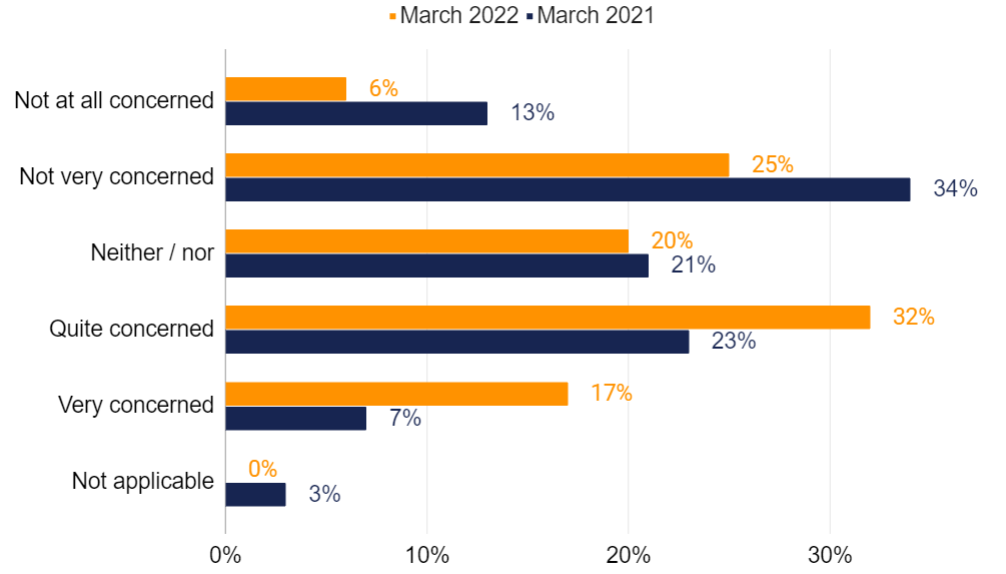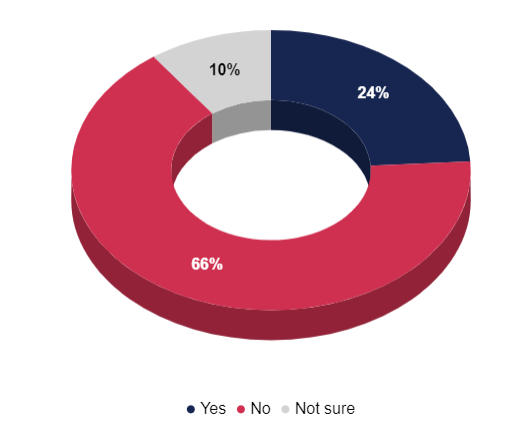TSR Insight’s Navigating Changing Options research revealed some fascinating insights about how Year 13s (or equivalent) are preparing for the world of work.
Discover how confident they feel about their employment prospects, how they are making decisions about their careers, and their views on degree apprenticeships.
How Year 13s feel about the job market
We have been monitoring student confidence levels relating to employment in each of the Navigating Changing Options surveys. In March, only 6% of respondents were ‘not at all’ concerned about getting a job after they graduate or finish their studies, but 49% were either ‘quite‘ or ‘very‘ concerned.
We asked the same question to the previous cohort in March 2021. In just a year, the percentage of Year 13 respondents who were ‘very‘ or ‘quite‘ concerned about getting a job after they graduate has increased by 19%.
Q. How concerned are you about getting a job after you graduate/finish your studies?
(Navigating Changing Options: Wave 7 – March 2022, Wave 4 – March 2021, Base 1008 (previous cohort), Year 13 England or equivalent)
Do Year 13s know what career they want?
Half of Year 13s said they had decided on a career path and a further 29% said ‘Maybe‘, indicating they had some idea.
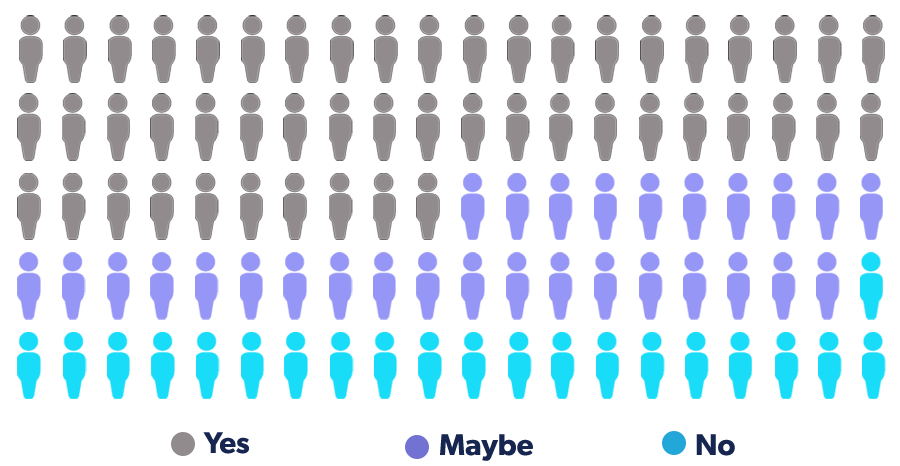
Q. Have you decided on your career path?
(Base 421, Year 13 England or equivalent)*
What do Year 13s want from their ideal career?
For this cohort a good work-life balance is important, but so is a high salary. Only 8% of respondents considered working in an office as something they were looking for in their ideal career, compared with 18% who wanted the flexibility to work from home. The top ten responses given were:
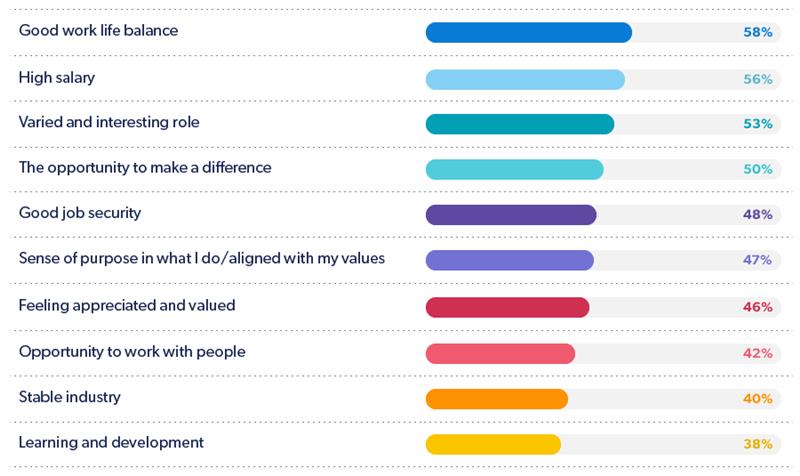
Q.What are you looking for in your ideal career? (select up to three)
(Base 419, Year 13 England or equivalent)
Responses also included: Opportunity to travel (35%), Clear progression (34%), Challenging role (33%), Responsibility (30%), Employer shares my values (28%), Good holiday/benefits package (27%), Stress-free role (19%), Prestigious role/employer (19%), Option to work from home (18%), Office based role (8%), Don’t know (1%).
How will Year 13s choose a career path?
Most Year 13s said they based their decision on their current skills or qualifications:
Q.How did you decide/will you decide on your chosen career path? (select all that apply)
(Base 418, Year 13 England or equivalent)
Of those who chose ‘Other‘, the most frequent comment was that they had always wanted to do this career, or mentioned value or emotion-led decision-making:
“It fits everything that I want in a career and I feel that it’s where I belong”
“Considering the kind of impact I want to have on others”
“listening to where passion wants to take me”
“I just want to do what I’ll enjoy and what will make me happy“
Some talked about the importance of industry contacts:
“Personal experience with people working in that field”
“having access to the field through contacts”
“Speaking to people in the field. Work experience. Researching about job roles and doing courses/webinars surrounding the industry”
“getting work experience”
A few also mentioned being influenced by media:
“TV shows”
“I read a book and I really want the guy’s job”
“YouTube“
Do they feel ready for the workforce?
Less than a third of respondents felt either ‘very‘ or ‘quite‘ prepared for entering the workforce. Around one in ten (11%) felt ‘not at all‘ prepared.
Q. How prepared do you feel for entering the workforce?
(Base 418, Year 13 England or equivalent)
Are Year 13s open to the idea of a degree apprenticeship?
Our survey found that less than a quarter of respondents have considered a degree apprenticeship.
Q.Have you considered/are you considering a degree apprenticeship?
(Base 417, Year 13 England or equivalent)
What are Year 13s perceptions about degree apprenticeships?
We wanted to know whether Year 13s are not aware of degree apprenticeships, or if negative perceptions about apprenticeships might be getting in the way of candidates applying. We asked them to select statements about degree apprenticeships which they agreed with:
Q. Here are some statements about higher and degree apprenticeships. Which of the following statements do you agree with? (Select all that apply)
(Base 406, Year 13 England or equivalent)
Just 27% of respondents agreed that degree apprenticeships lead to high-income employment, and only 26% felt it would help them achieve their career goals. This suggests a high proportion of respondents had concerns that degree apprenticeships would not help them to get ahead.
38% said they would be interested in a degree apprenticeship run by a top university, while 31% would be interested if it was run by a prestigious employer.
Myth-busting the old stereotypes
Only 20% of respondents agreed that degree apprenticeships are mainly taken up by men.
Surprisingly, only 9% agreed that parents/carers had a strong influence on their opinions about degree apprenticeships.
Finally, less than one in five (19%) of students agreed that degree apprenticeships only teach technical or practical, hands-on work.
Our top tips for what to do next
- Reassure candidates that there are jobs available for graduates and school-leavers – many are concerned they won’t find opportunities, so there is a strong case for early engagement, especially for niche careers which may not be covered by teachers or careers advisors
- Target Year 13 (and equivalent) with online advertising
- Emphasise work/life balance and salary in your job adverts to attract Year 13 job-seekers
- Help students to prepare for the workforce – provide clear information about the qualifications needed for your roles, where students can get work experience, and what you expect to see on their CVs. Could you share stories from your current youth hires to give students an insight into how to successfully access the industry?
- Raise awareness about degree apprenticeships – only a small proportion of respondents had considered degree apprenticeships and stigmas still need to be overcome. By providing more information to students via key channels they use you can increase interest in these roles.
Get in touch:
0800 999 3222
hello@thestudentroom.com
*1% preferred not to say
Sources
TSR Insight’s Navigating Changing Options Survey, March 2022
Google analytics, The Student Room activity (data taken: 24th March 2022)
